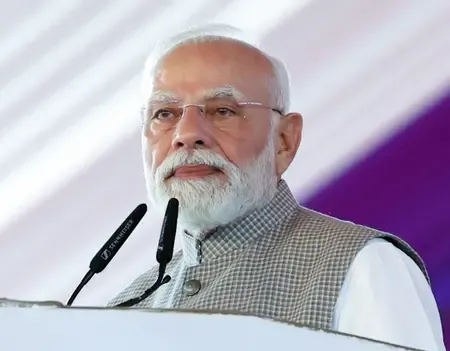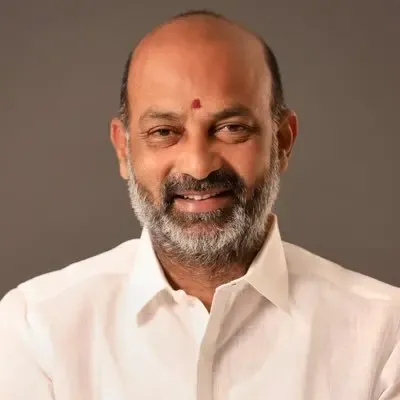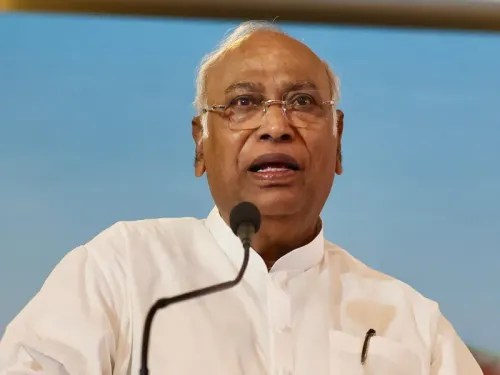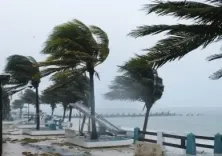Does Bangladesh Have Two Vulnerable 'Chicken Necks'?
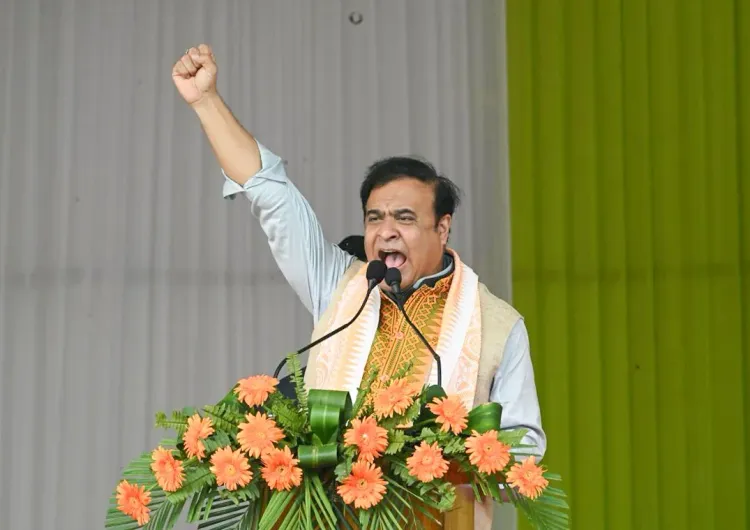
Synopsis
Key Takeaways
- Bangladesh has two vulnerable corridors that can impact national security.
- The Siliguri Corridor is a critical strategic chokepoint for India.
- Sarma's comments highlight the importance of understanding regional vulnerabilities.
- Military strength plays a crucial role in regional geopolitics.
- Public discourse should remain focused on factual accuracy.
Guwahati, May 25 (NationPress) In a direct response to those who often express concerns regarding India's strategic 'Siliguri Corridor', Assam Chief Minister Himanta Biswa Sarma highlighted the geographical weaknesses of Bangladesh, claiming that the neighboring nation has two vulnerable corridors that are even more prone to disruption.
“For those who consistently threaten India regarding the ‘Chicken Neck Corridor’, they should consider these realities,” Sarma stated, referring to the Siliguri Corridor—India’s narrow land passage measuring 22 kilometers, which serves as a crucial link between its northeastern states and the mainland, often seen as a strategic 'chokepoint'.
Sarma emphasized that Bangladesh's equivalent of “chicken necks” includes the 80-kilometer-long North Bangladesh Corridor, which extends from Dakhin Dinajpur to South West Garo Hills.
He noted that any disruption in this corridor could isolate the entire Rangpur division from the rest of Bangladesh, causing a significant national security and connectivity crisis for Dhaka.
Moreover, he pointed out the importance of the Chittagong Corridor, a narrow link from South Tripura to the Bay of Bengal.
“This corridor, which is smaller than India’s chicken neck, is the sole connection between the economic capital and political capital of Bangladesh,” Sarma remarked, referring to the critical route linking Dhaka with Chittagong, the country's main port city.
“I am merely presenting geographical realities that some might overlook,” Sarma added, indicating that the frequent focus on India's vulnerabilities neglects the broader regional landscape.
His comments are likely to provoke discussions in strategic and diplomatic circles, particularly as regional tensions continue to be a topic of scrutiny.
Sarma had previously warned Bangladesh about its own chicken neck—highlighting that it has not one but two—at a time when Dhaka has intensified discussions regarding India's strategic chicken neck corridor that connects to the northeast.
He cautioned Bangladesh amidst its apparent rising interest in India’s crucial chicken neck, also dubbed the Siliguri corridor.
“We have one chicken neck, but Bangladesh possesses two. Should Bangladesh attack our chicken neck, we will target both of Bangladesh’s chicken necks... the one in Meghalaya that links to Chittagong port in Bangladesh is even narrower than India’s chicken neck and is situated just a stone's throw away,” Sarma informed reporters.
The BJP leader further reminded Bangladesh of India’s military capabilities, particularly after Operation Sindoor, which saw India incapacitate terror camps deep within Pakistan and strike its military installations. Sarma declared, “Bangladesh would need to be reborn 14 times” before it could consider an attack on India.

